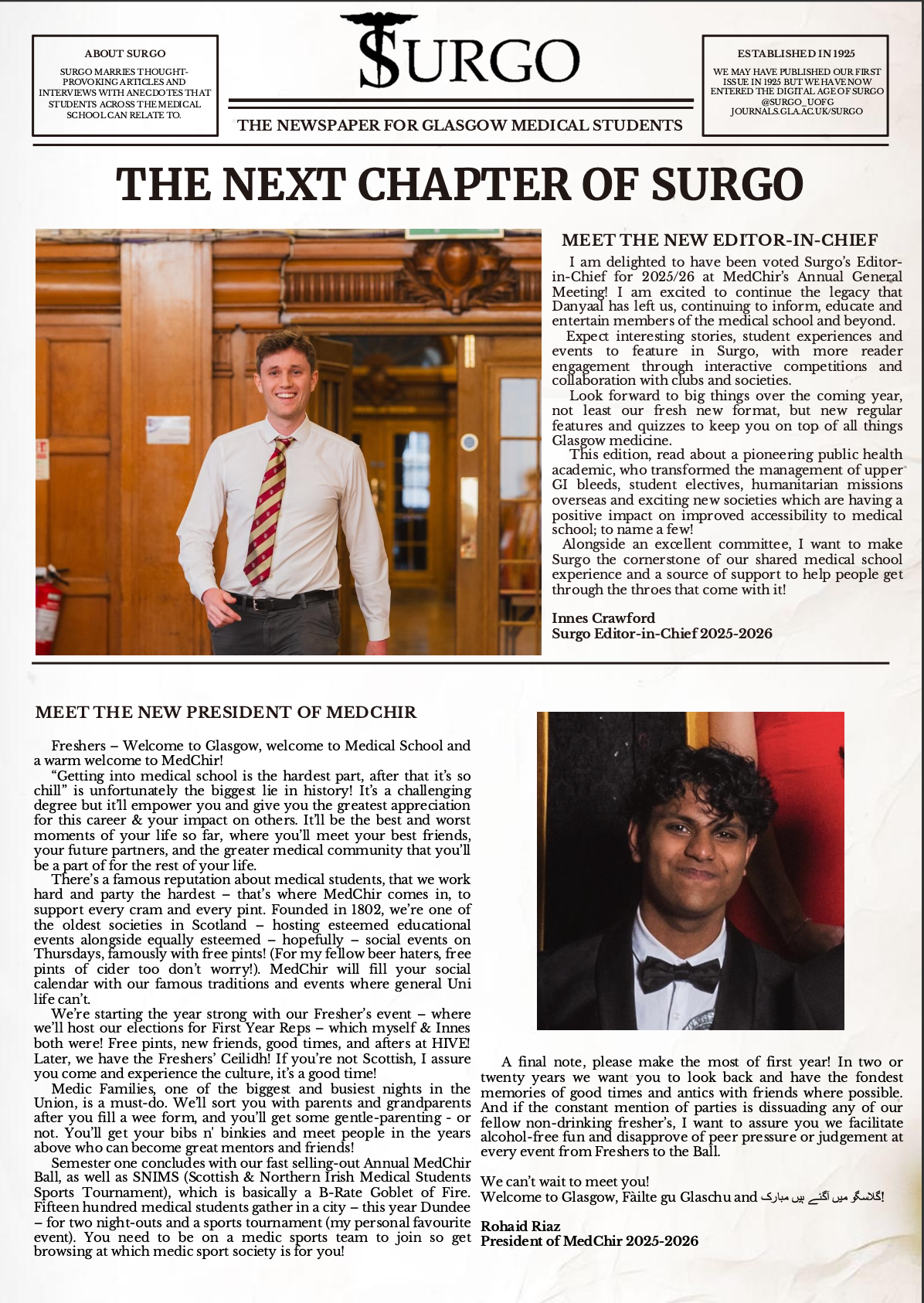Enhancing Equity in Medical Education
DOI:
https://doi.org/10.36399/Surgo.3.650Abstract
Widening access to medical education is a key priority for medical schools. Historically, there has been a stereotype of who becomes a medical student, which is no longer aligned with society today. Only four percent of doctors come from a working-class background¹ — a striking statistic which is often overlooked at a national level. It is crucial that doctors represent the population, to strengthen the doctor-patient relationship and ultimately improve health outcomes.
The challenge of pursuing a medical career often starts in schools. Many from non-selective state schools face barriers when applying to medical school. There is often a lack of awareness of the application deadlines and selection process, which can lead to initial difficulties in applying. It is encouraging to see widening participation initiatives, such as the Reach programme, being implemented to overcome these barriers.
However, the need for support doesn’t stop after admission. Medical students from widening participation backgrounds continue to face challenges throughout their time at medical school and beyond. Recognising these challenges is vital to understanding students’ experiences. Medical students from widening participation backgrounds are more likely to face mental health challenges².
Imposter syndrome can make it difficult to establish a sense of belonging. Many may not be able to relate to their peers, which can perpetuate feelings of loneliness and isolation. A recent study has shown that a medical student’s background is associated with their specialty choice³, highlighting the lasting impact of background on career pathways.
Understanding these ongoing challenges has driven national research initiatives. The National Medical Schools Widening Participation Forum conference in Glasgow provided a valuable opportunity to learn about the ongoing research in this area and connect with likeminded individuals committed to enhancing equity in medical education.
Glasgow University Widening Access to Medicine Student Society aims to provide support for widening participation students across the medical school. Our key aims are to foster community, reduce isolation and help students connect with peers from similar backgrounds. We aim to support medical students across all years by providing education, career networking events and mentorship opportunities.
Exemplary work across the UK has sought to understand the barriers to medical education. However, with so few doctors from a working-class background¹, there is a long way to go until equity is achieved. Key priorities moving forward include defining widening participation parameters and targeting support at the most under-represented groups. Further research into the challenges faced by widening participation students is needed to improve retention and support. Overall, doctors will truly represent society when opportunity is no longer limited by background.
References:
1.White C. Just 4% of UK doctors come from working class backgrounds. BMJ. 2016;355:i6330.
2.Ravulapalli KC, Arroyave Caicedo NM, Zahra D, Mirza M. Quantitative Analysis of Challenges Encountered by UK Widening Participation Medical Students in Comparison With Their Non-Widening Participation Peers. J Med Educ Curric Dev. 2024;11:23821205241249012.
3.Ashley L, McDonald I. When the Penny Drops: Understanding how social class influences speciality careers in the UK medical profession. Soc Sci Med. 2024;348:116747.


